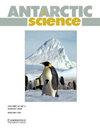公众对南极科学的支持:来自澳大利亚全国调查的教训
IF 2
4区 地球科学
Q3 ENVIRONMENTAL SCIENCES
引用次数: 0
摘要
随着南极地区在人为气候变化的讨论中占据越来越多的位置,了解公众对该地区研究的支持变得越来越重要。我们根据2021-2022年对1000多名成年人进行的一项全国代表性调查的结果,研究了澳大利亚公众对南极科学的支持。关键的结果加强了在其他国家背景下的早期发现——例如,老年人和男性比年轻人和女性更有可能支持南极科学研究。它们还揭示了新的信息,包括媒体报道的特定来源与对南极研究的支持之间的相关性。我们的数据对政府机构和非政府组织的公众参与工作在哪里以及如何得到最有效的应用具有启示意义。虽然这项调查主要集中在澳大利亚,但它指出了公众对南极研究支持的复杂性,这可以在其他国家和国际背景下进行富有成效的调查。本文章由计算机程序翻译,如有差异,请以英文原文为准。
Public support for Antarctic science: lessons from a national survey of Australians
Abstract With the Antarctic region featuring more and more in discourse around anthropogenic climate change, understanding public support for research in the region is increasingly important. We examine public support for Antarctic science in Australia, drawing on findings from a nationally representative survey of just over 1000 adults conducted in 2021–2022. Key results reinforce earlier findings in other national contexts - for example, that older people and men are more likely to support Antarctic scientific research than younger people and women. They also reveal new information, including a correlation between particular sources of media coverage and support for Antarctic research. Our data have implications for where and how the public engagement efforts of government agencies and non-governmental organizations could most usefully be applied. While the survey is focused on Australia, it points to complexities around public support for Antarctic research that could be productively investigated in other national and in international contexts.
求助全文
通过发布文献求助,成功后即可免费获取论文全文。
去求助
来源期刊

Antarctic Science
地学-地球科学综合
CiteScore
3.60
自引率
6.20%
发文量
42
审稿时长
3 months
期刊介绍:
Antarctic Science provides a truly international forum for the broad spread of studies that increasingly characterise scientific research in the Antarctic. Whilst emphasising interdisciplinary work, the journal publishes papers from environmental management to biodiversity, from volcanoes to icebergs, and from oceanography to the upper atmosphere. No other journal covers such a wide range of Antarctic scientific studies. The journal attracts papers from all countries currently undertaking Antarctic research. It publishes both review and data papers with no limits on length, two-page short notes on technical developments and recent discoveries, and book reviews. These, together with an editorial discussing broader aspects of science, provide a rich and varied mixture of items to interest researchers in all areas of science. There are no page charges, or charges for colour, to authors publishing in the Journal. One issue each year is normally devoted to a specific theme or papers from a major meeting.
 求助内容:
求助内容: 应助结果提醒方式:
应助结果提醒方式:


